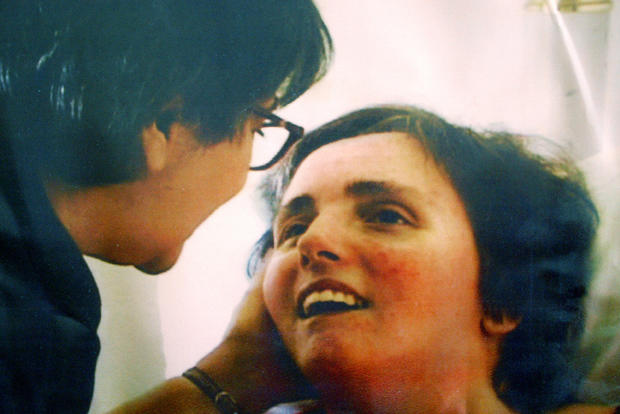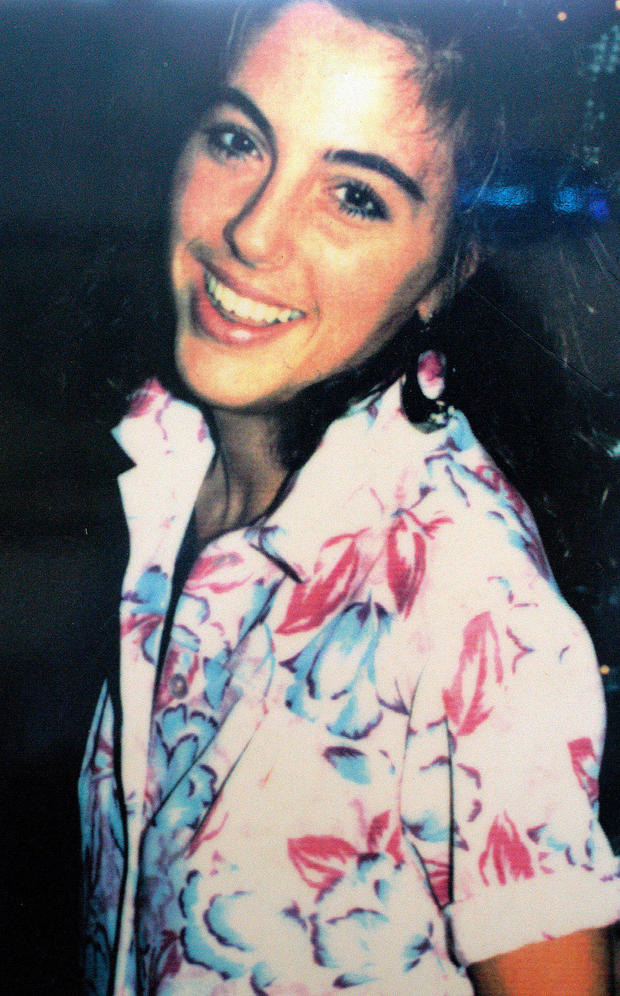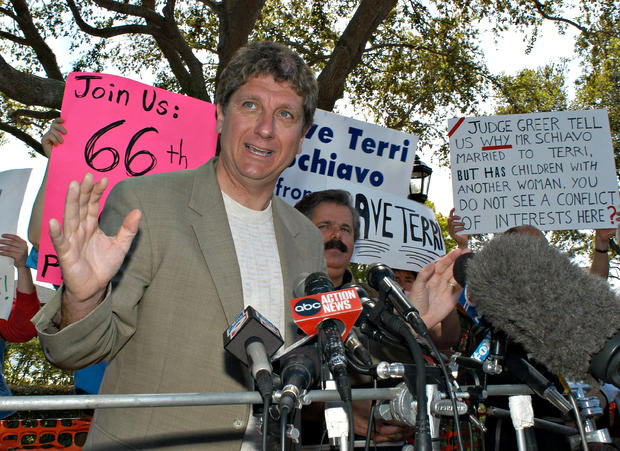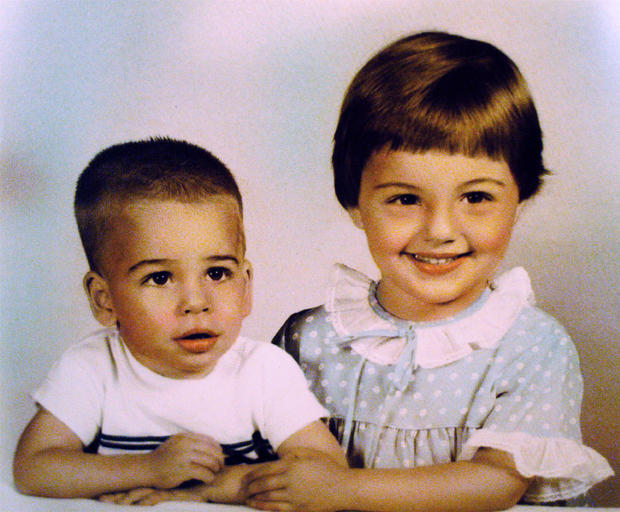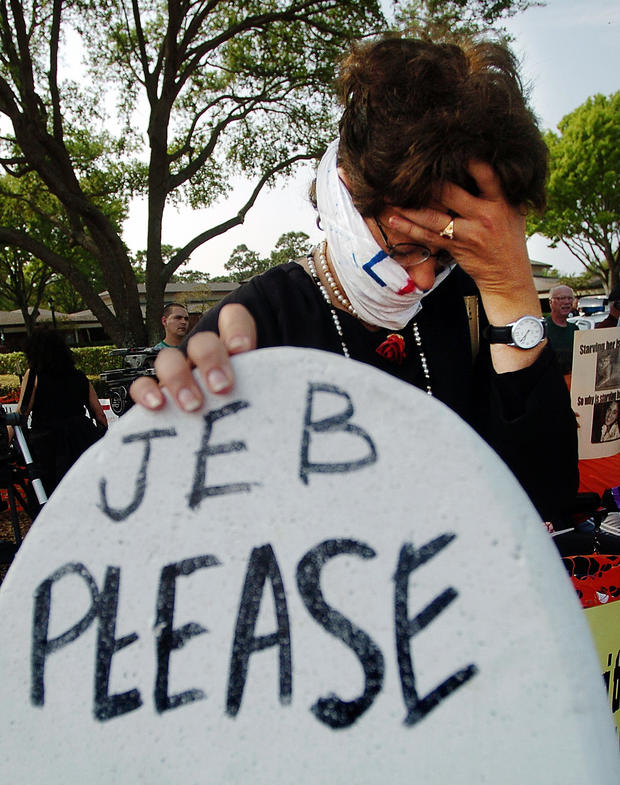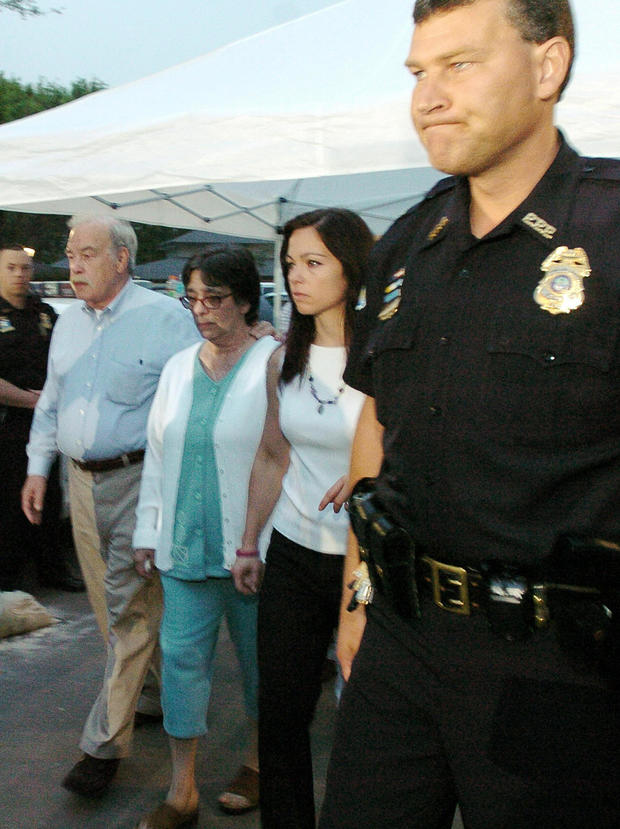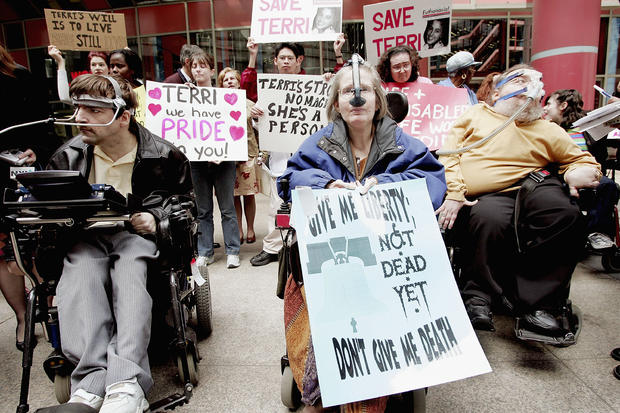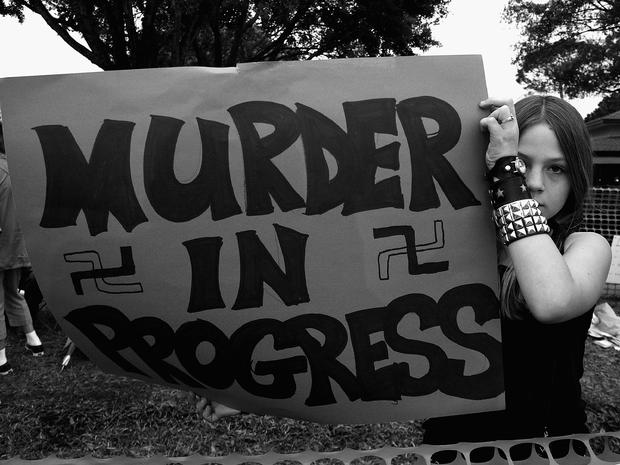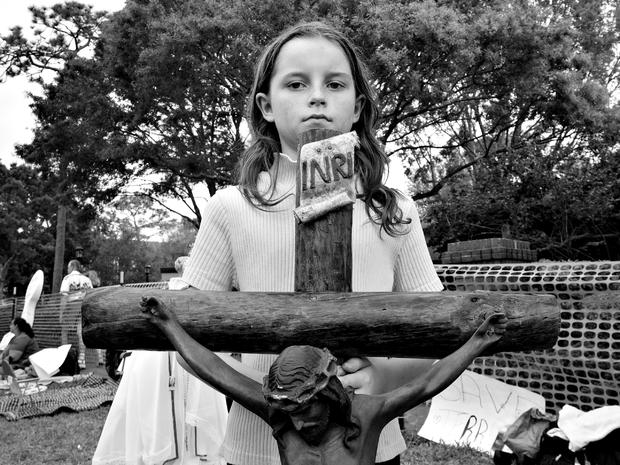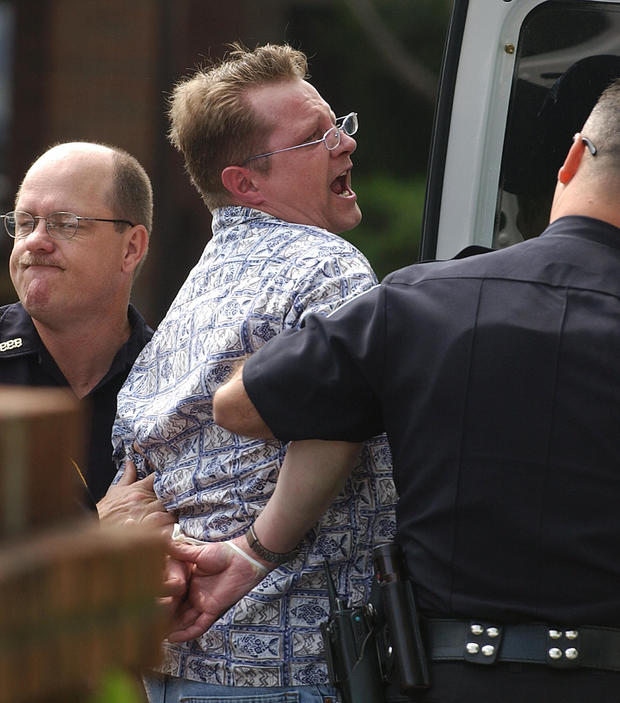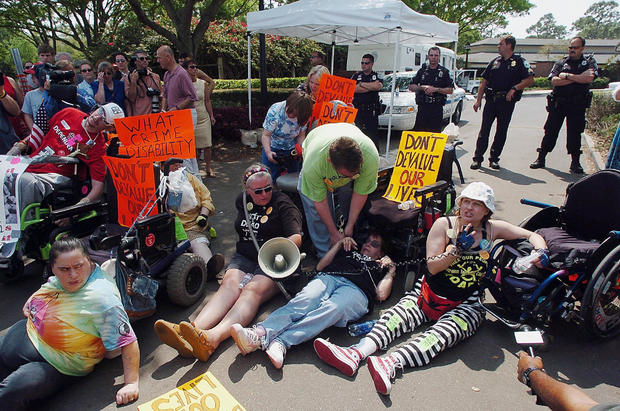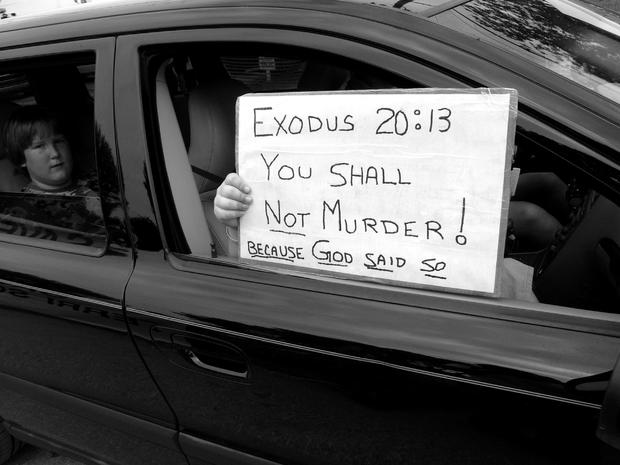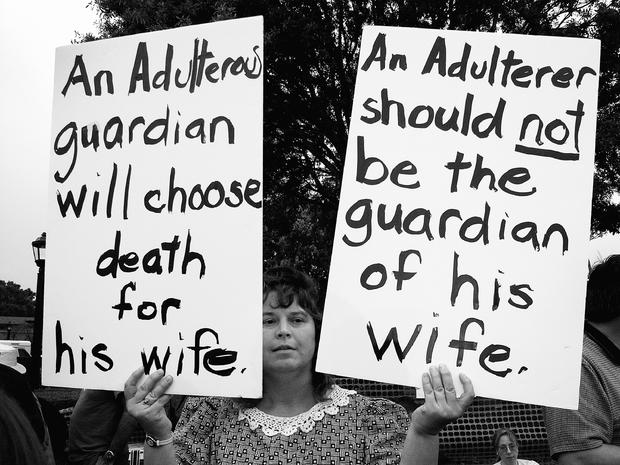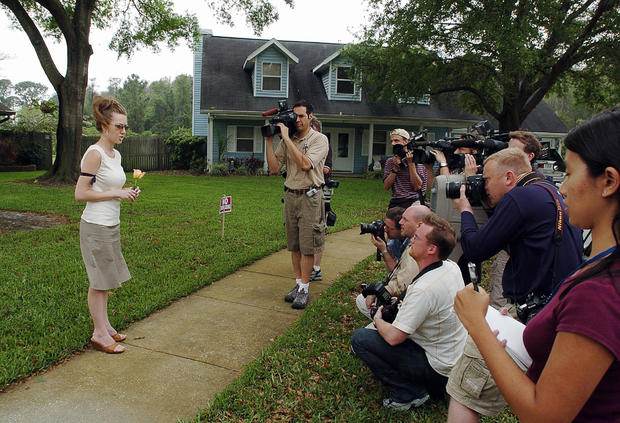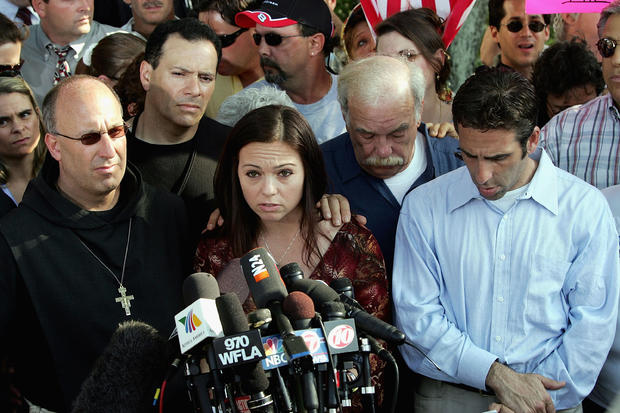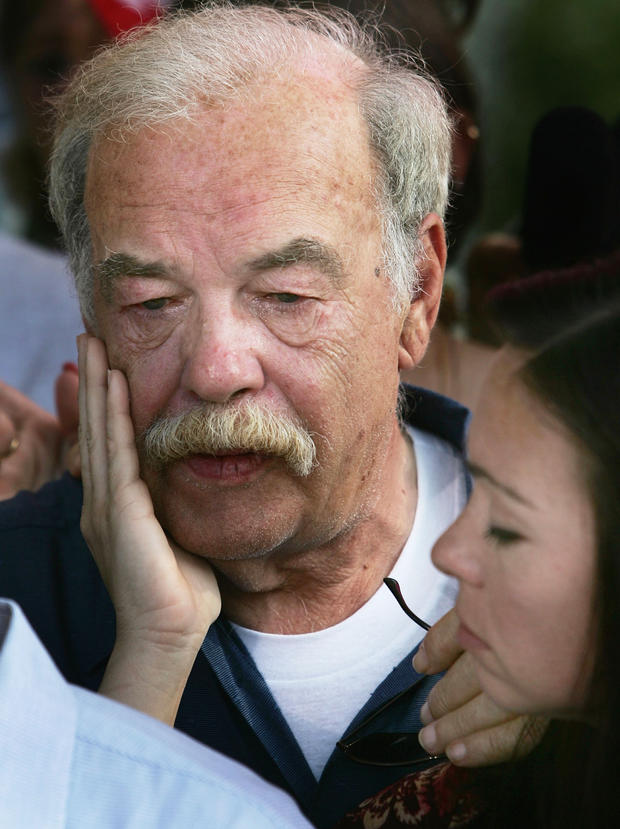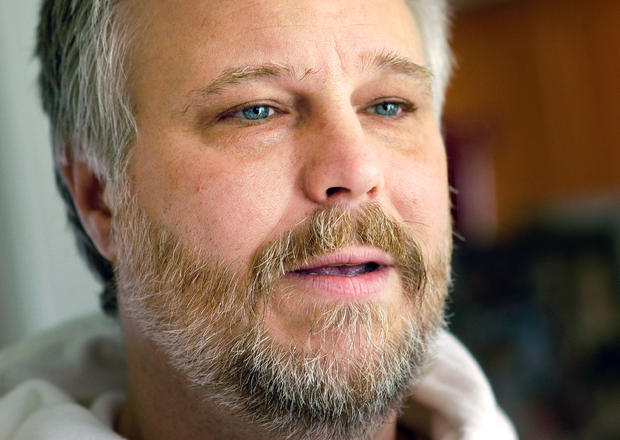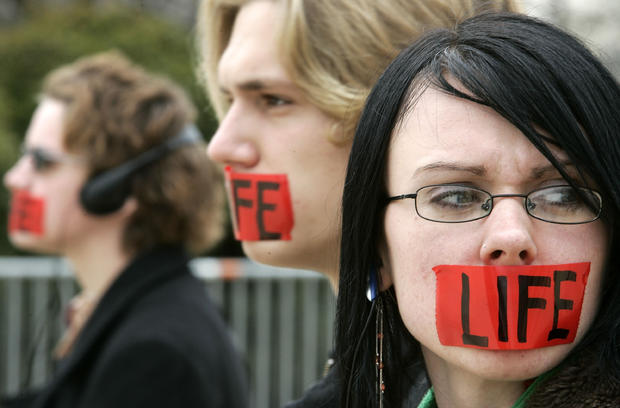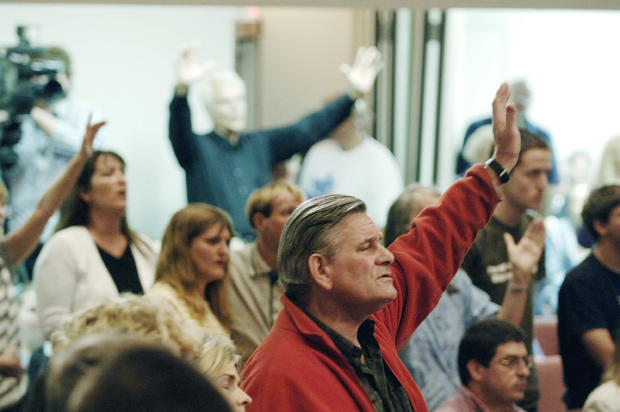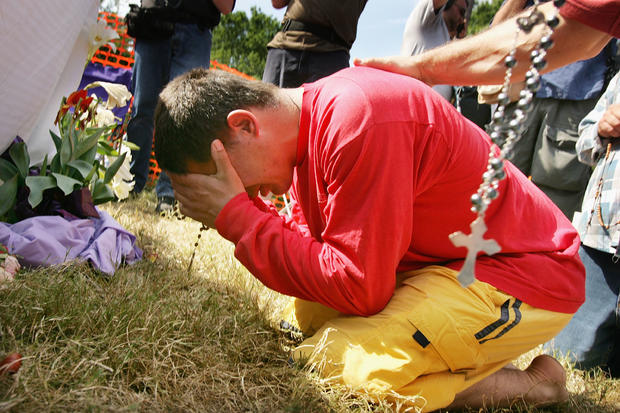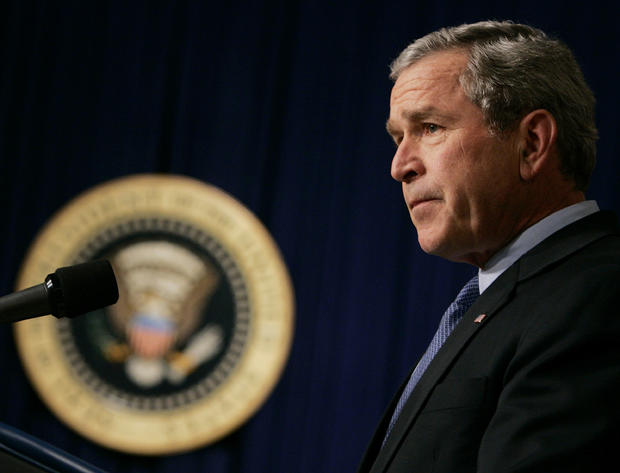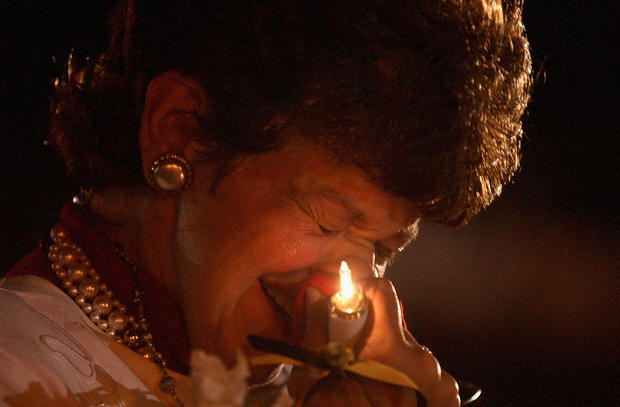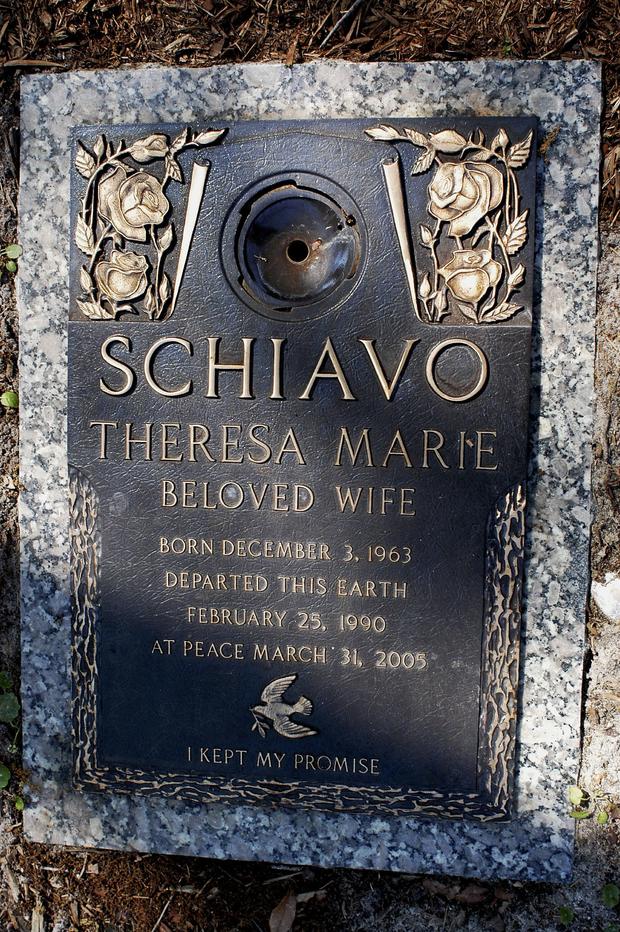A look back: The Terri Schiavo case
In 1990, 26-year-old Terri Schiavo fell into a persistent vegetative state after suffering cardiac arrest. A fierce highly public battle took place between her parents, Robert and Mary Schindler, and her husband, Michael Schiavo, who wanted to disconnect her feeding tube. Terri's husband argued that his wife would not have wanted her life artificially prolonged, with no hope of recovery.
Terri Schiavo's case spurred an emotional nationwide and international heated debate over quality of life, right-to-die and end-of-life issues.
Though the courts sided with Michael Schaivo, the state legislature passed a bill, known as Terri's law, giving Florida Gov. Jeb Bush authority to prevent the removal of the feeding tube. After much back and forth involving state and federal courts, Terri's feeding tube was removed, ending the long legal struggle over her fate when she died eleven years ago today on March 31, 2005 at the age of 41.
A family photo show Terri Schiavo and her mother at Terri's hospital bed in 2003 in Gulfport, Florida.
Terri Schiavo
A photograph of Terri Schiavo (Schindler) before her heart attack. Schiavo suffered a severe lack of oxygen and brain damage, falling into a persistent vegetative state. She was then on life support, hooked up to a feeding tube for 15 years.
From 1995, Schiavo's husband began fighting to allow his wife to die. No doctor who examined Terri believed she had a chance to recover. Terri's family vehemently disagreed, producing a bitter family struggle that became very public as the fight was taken to the courts.
Terri Schiavo case
Randall Terry speaks to the media outside the hospice center where Terri Schiavo is staying March 20, 2005 in Pinellas Park, Florida.
Terry led efforts to mobilize Schiavo supporters to call and write their legislators. When Terri Schiavo's feeding tube was removed March 18 she was expected to survive one to two weeks without it. The U.S. Senate and the House convened a special Sunday session to try to reach an agreement on legislation to save Schiavo's life.
Robert Schindler Jr. & Terri Schiavo
In this family photograph, Terri Schiavo is shown as a toddler with her brother Robert Schindler Jr. on September 24, 2004 in Gulfport, Florida.
"Terri's Law," enacted in 2005 by Governor Jeb Bush, was designed to keep Shiavo alive but the Florida Supreme Court recently ruled the law unconstitutional.
Terri Schiavo case
Mary Porta, a supporter of Terri Schiavo prays March 25, 2005, outside the Woodside hospice in Pinellas Park, Florida. Hundreds of sympathizers who supported keeping Schiavo alive came to the hospice and expressed their views daily.
A Florida judge refused an emergency request March 25 by Schiavo's parents to have the feeding tube reinserted after its removal March 18. With virtually all the legal avenues exhausted, including the Florida Supreme Court, the US Supreme Court, the US Congress and the White House, "the family hopes at this time rest squarely on (Florida) Governor (Jeb) Bush," the Schindlers' spokesman Randall Terry said March 24.
Terri Schiavo case
The mother of Terry Schiavo, Mary Schindler (C), is escorted by her daughter Suzanne Vitadamo (2nd R) and her husband Bob Schindler (L) as they walk out of the Woodside hospice grounds where the 41-year-old Schiavo is kept in Pinellas Park, Florida, March 25, 2005.
Schiavo's father lamented that his severely brain-damaged daughter was "down to her last hours" as she entered her second week without food and water, while his attorney said in a new legal appeal that Schiavo recently tried to say she wanted to live.
Terri Schiavo case
Disabled activists stage a protest calling for continued care and feeding of Terry Schiavo during a protest at the Thompson Center Plaza March 29, 2005 in Chicago.
Schiavo, at this point had gone more than 11 days without food or water after a judge ordered her feeding tube removed March 18 at her husband's request.
Terri Schiavo case
Kiki Watson, 12, holds a sign as she protests in front of the hospice housing Terri Schiavo March 23, 2005 in Pinellas Park, Florida. Watson said, "I'm here because my mother is disabled, and yes, I'm religious."
Thousands of people converged on the hospice from around the country to protest and show solidarity with Schiavo's plight. Many were extremely religious and conservative; they saw this case as an affront to their values and belief in the sanctity of human life.
Terri Schiavo case
Rebecca Kimball, 8, a young supporter of the brain damaged Florida woman Terri Schiavo, keeps vigil outside of the Woodside Hospice where Schiavo is being cared for March 24, 2005 in Pinellas Park, Florida.: "I felt a need to come out , I go to Sunday school and I'm a Catholic," said Kimball.
The Vatican in Rome challenged American law which allowed for discontinuing food and water in certain circumstances, arguing for the sanctity of human life.
Terri Schiavo case
A protester is led away by police after he trespassed into the Woodside hospice in Pinellas Park, Florida, 27 March 27, 2005.
Hundreds of people who supported keeping Terri Schiavo alive gathered daily in front of the hospice. Several dozen people were arrested for attempting to enter the hospice.
Terri Schiavo case
Disabled people sit in front of one of the entrances to the Woodside hospice in Pinellas Park, Florida, March 27, 2005 as they protest against the decision of U.S. federal and state courts support for removal of the feeding tube from Terri Schiavo.
Terri Schiavo case
Supporters of Terri Schiavo keep vigil outside of the Woodside Hospice where Schiavo is being cared for March 25, 2005 in Pinellas Park, Florida.
Terri Schiavo case
Supporters of Terri Schiavo keep vigil outside of the Woodside Hospice where Schiavo is being cared for March 23, 2005 in Pinellas Park, Florida. Supporters of Terri expressed angry views of her husband.
All legal efforts for the family failed to have Schiavo's feeding tube reinserted. The right for a married spouse to make medical decisions on behalf of their partner was upheld.
Terri Schiavo case
A woman holding a rose and wearing a black armband speaks to the media in front of Michael Schiavo's house in Clearwater, Florida, 27 March 2005. A couple dozen protesters left roses in front of the house.
Terri Schiavo
Terri Schiavo's sister Suzanne Vitadamo (C) speaks as her father Bob Schindler (2nd R), brother Bobby Schindler Jr. (R) and Brother Paul O'Donnell listen during a news conference outside the Woodside Hospice after Terri Schiavo died March 31, 2005.
Terri Schiavo case
Terri Schiavo's sister Suzanne Vitadamo (R) places her hand on her father Bob Schindler's face during a news conference outside the Woodside Hospice after Terri Schiavo died March 31, 2005 in Pinellas Park, Florida.
Terri Schiavo case
Scott Schiavo speaks to the press after learning of the death of his sister-in-law Terri Schiavo March 31, 2005 in Levittown, Pennsylvania. Terri Schiavo died in the morning of March 31.
It had been reported that Scott Schiavo and his relatives in the Philadelphia region have received numerous death threats.
Terri Schiavo case
Members of "The Cause USA" tape their mouth with the word "Life" as they stand outside the U.S. Supreme Court in memory of Terri Schiavo March 31, 2005 in Washington, D.C.
Terri Schiavo case
People pray during a memorial service for Terri Schiavo at Praise Cathedral March 31, 2005 in Pinellas Park, Florida.
Terri Shiavo's case was a landmark event. Today, some states only allow married relatives to make health care and treatment decisions. Others, have laws pre-empting written patient directives if the person is pregnant. Written end-of-life statements are honored while often verbal statements are not.
Since Shiavo died, three states in the country allow the terminally ill to make their own decision to end their lives.
Terri Schiavo case
A worker at Archbishop Wood High School changes a sign to reflect Terri Schiavo's death March 31, 2005 in Warminster, Pennsylvania.
Schiavo graduated from Archbishop Wood High School in 1981.
Terri Schiavo case
A demonstrator weeps outside the Woodside Hospice moments after Terri Schiavo died March 31, 2005 in Pinellas Park, Florida.
Schiavo, 41, died at her Florida hospice 13 days after her feeding tube was removed. Her death ended a long standing legal struggle over her fate.
George Bush
President George W. Bush, brother of Florida Gov. Jeb Bush, comments on the death of Terri Schiavo March 31, 2005 in Washington, D.C.: "The essence of civilization is that the strong have a duty to protect the weak," Bush said. "In cases where there are serious doubts and questions, the presumption should be in favor of life."
Bush came close to creating a constitutional crisis between the executive branch and the courts when he tried to override the Florida courts' repeated rulings in favor of Michael Schiavo.
The U.S. Congress held a special Sunday session in efforts to intervene in the case and have Terri Shiavo's feeding tube reinserted.
Terri Schiavo case
Mary Porta cries before the memorial service for Terri Schiavo at Praise Cathedral March 31, 2005 in Pinellas Park, Florida.
Terri Schiavo case
Terri Schiavo's gravesite sits along the bank of a pond at the Sylvan Abbey Memorial Park March 30, 2006 in Clearwater, Florida.
Dr. Jon Thogmartin, medical examiner for Pinellas County, confirmed June 15 in Largo, Florida that Schiavo died of died of dehydration, but he couldn't pinpoint exactly what caused her to collapse in 1990. He also said her brain was half the size of a normal adult's brain, severely and irreversibly damaged.
